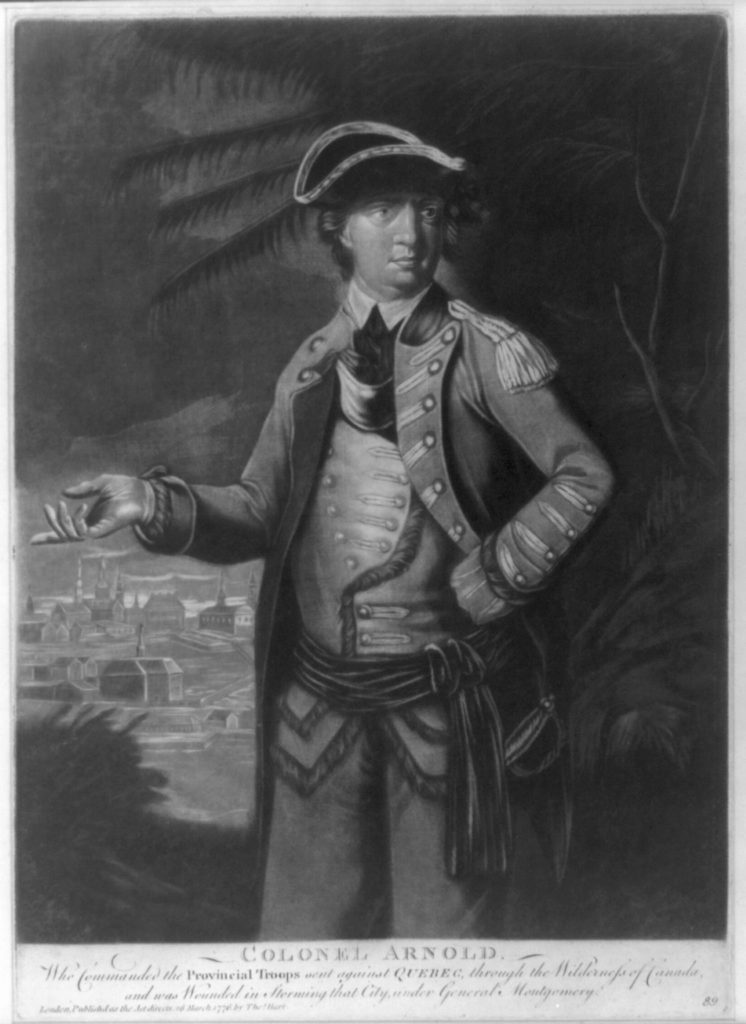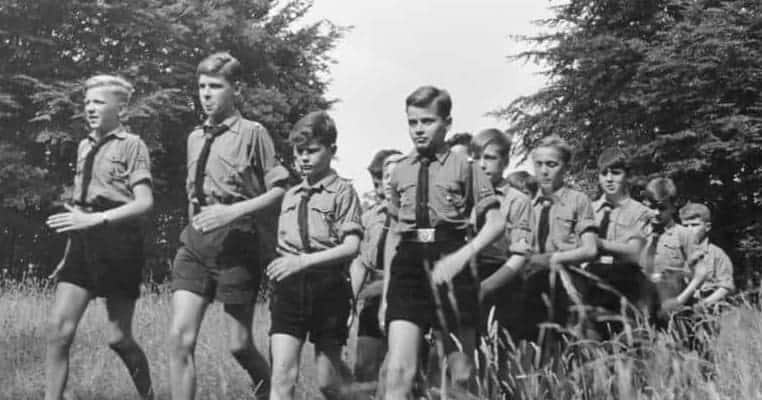According to federal law, as defined in 18 United States Code Section 2381, “Whoever, owing allegiance to the United States, levies war against them or adheres to their enemies, giving them aid and comfort within the United States or elsewhere, is guilty of treason, and shall suffer death, or shall be imprisoned not less than five years and fined under this title but not less than $10,000; and shall be incapable of holding any office under the United States”.
It would seem clear from a laymen’s reading of the statute that the entire Confederacy was guilty of treason during the American Civil War, but no Confederate leader was ever convicted under the law. There have been others though, Americans convicted of the crime against the United States.

The most famous traitor in American history is arguably Benedict Arnold, though Arnold was not tried for his treachery and the statute defining treason did not exist at the time he tried to sell out American troops for money and a commission in the British army. In more recent times, Americans such as Jonathan Pollard and the members of the Walker spy ring have been tried under the charge of espionage rather than treason, though their behavior would again seem to be covered by the US code as treason. In America’s past presidents have considered criticism of their government to be treasonous, including George Washington, Thomas Jefferson, and John Adams. Yet few federal convictions for treason have occurred in American history.
Here are some of the incidents of people convicted for treason against the United States, and some who managed to elude justice for their arguably treasonous acts.

1. The Whiskey Rebellion was an armed uprising against the federal government over taxes
During the first administration of George Washington, Pennsylvania farmers and distillers rose in protest against a tax on distilled spirits. For many years farmers distilled excess grain including corn, rye, and wheat into what was then called American whiskey, and their resistance to taxation of their product led the revolt to become known as the Whiskey Rebellion, which grew to the point that President Washington mobilized the army out of militia provided by several states, and donned his old uniform to lead it against the rebels as Commander in Chief. It was the only time in American history that the President of the United States appeared in uniform while executing the duties of his office.
The Whiskey Rebellion included a conflict known as the Battle of Bower Hill near Pittsburgh, as well as other engagements which created casualties among the insurrectionists and the militia. It took a huge show of force to suppress the rebellion in 1794 and several of the leaders were tried for treason. Of the 24 indicted, ten were captured and stood trial. Two, Philip Vigol and John Mitchell, were convicted and sentenced to be hanged. Washington pardoned both. Several others were tried and convicted of lesser charges in the state courts of Pennsylvania. Washington’s use of the federal government to suppress the rebellion was generally met with approval by the American people and did much to legitimize the Constitution in the western lands, which had until then generally frowned upon a powerful executive branch of government.

